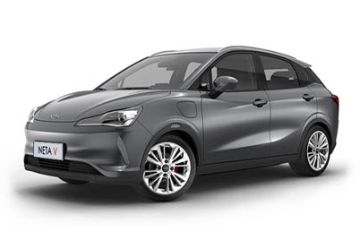![No refuelling, only recharging: Can BEVs save you money in Malaysia? 01]()
With the potential removal of petrol subsidies on the horizon, many Malaysians are rethinking their vehicle choices. Battery-electric vehicles (BEVs) present an increasingly attractive option, not just for environmental reasons but for their potential financial savings.
Here's how driving electric in Malaysia can help you keep more money in your pocket, even when electricity rates are high.
Electricity costs vs petrol prices
![No refuelling, only recharging: Can BEVs save you money in Malaysia? 02]()
Currently, RON 95 petrol is capped at RM 2.05 per litre. However, with the government planning to restructure petrol subsidies by mid-2025, this price could rise to RM 2.76 per litre or higher. In comparison, even at the highest domestic electricity rate, EV charging can still be cheaper.
Using the highest domestic electricity tariff:
- RM 0.571 per kWh (for usage above 900 kWh/month)
- Charging a 60 kWh battery at this rate would cost RM 34.26.
Now, let’s compare that to petrol:
- Filling up a 60-litre petrol tank with RON 95 at the current RM 2.05 per litre costs RM 123.
- If the price of RON 95 increases to RM 2.76, it would cost RM 165.60.
Even in the worst-case scenario, you're still saving RM 88.74 (compared to RM 2.05) or RM 131.34 (compared to RM 2.76) per full charge versus a full tank of petrol.
Factoring in efficiency
![No refuelling, only recharging: Can BEVs save you money in Malaysia? 01]()
Of course, there are many variables to consider, such as efficiency. Just like different petrol cars have varying fuel consumption, EVs have different energy efficiencies. A 60 kWh battery doesn’t necessarily equate to the range you would get from 60 litres of petrol in most cars. Depending on the BEV’s efficiency, your range can vary significantly.
For example:
- Energy-efficient BEVs can deliver up to 7 km per kWh, giving you around 420 km from a 60 kWh charge.
- Meanwhile, some less efficient BEVs may deliver closer to 4 km per kWh, resulting in a range of 240 km.
In comparison, a petrol car with a 60-litre tank and an average consumption of 7 litres per 100 km would give you a range of about 857 km. While petrol vehicles may have longer ranges, the running costs of BEVs still offer savings in daily driving, especially if fuel prices rise.
Tax incentives for BEVs
![No refuelling, only recharging: Can BEVs save you money in Malaysia? 02]()
BEV buyers in Malaysia can take advantage of tax breaks. Until the end of 2025, fully-imported (CBU) BEVs are exempted from import and excise duty taxes, and locally-assembled (CKD) BEVs enjoy the exemption until the end of 2027. These exemptions make BEVs a more attractive value proposition compared to internal combustion engine (ICE) cars.
Maintenance cost savings
![No refuelling, only recharging: Can BEVs save you money in Malaysia? 03]()
Traditional petrol or diesel engines have numerous parts that require frequent servicing, such as oil changes, filters, and complex engine repairs. EVs have fewer moving parts, meaning you’ll save on maintenance over the long term. Key areas of maintenance in an EV are:
- Tyres
- Brakes (with regenerative braking, brake wear is significantly reduced)
- Battery checks
Without engine parts to maintain, BEV owners can save quite a sum over the vehicle's lifetime.
Home charging vs public charging costs
![No refuelling, only recharging: Can BEVs save you money in Malaysia? 04]()
Charging your BEV at home using the highest tariff still comes out cheaper compared to petrol. However, public charging costs vary, below is a general price range:
- AC chargers: RM 0.80 to RM 1.00 per kWh
- DC fast chargers: RM 1.20 to RM 2.20 per kWh
While public charging costs more, it’s typically still cheaper than filling a petrol tank.
Workplace charging initiatives
![No refuelling, only recharging: Can BEVs save you money in Malaysia? 05]()
Many Malaysian companies are adopting EV charging stations at their workplaces, allowing employees to charge while at work. Some companies are even transitioning to BEV fleets.
These workplace initiatives also benefit employers by enhancing their Environmental, Social, and Governance (ESG) credentials, aligning them with green goals.
Given the expected changes to petrol subsidies and the cost-saving advantages of BEVs, now is the perfect time to make the switch. Check out Neta BEVs at CARSOME PJ Automall today and drive towards a greener, more cost-effective future.
This post in sponsored by CARSOME














